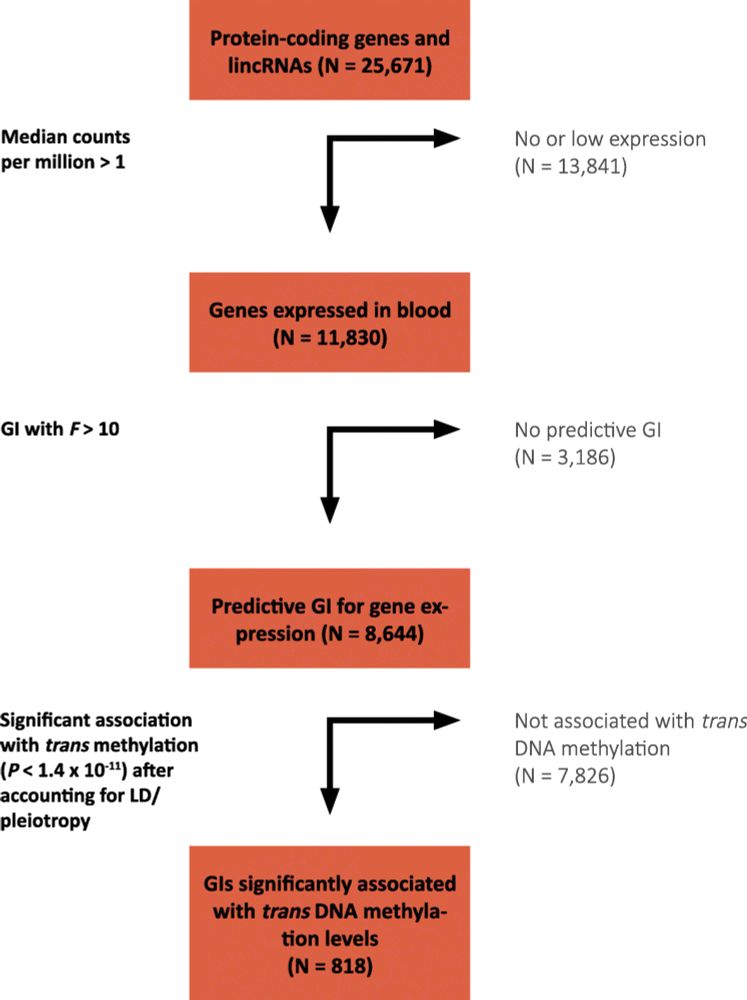Duncan Sproul
@sproullab.bsky.social
Group leader at MRC Human Genetics Unit, University of Edinburgh. Interdisciplinary research on disease #epigenetics. Part-time solo dad. Occasional music and climbing.
https://institute-genetics-cancer.ed.ac.uk/research/research-groups-a-z/sproul-group
https://institute-genetics-cancer.ed.ac.uk/research/research-groups-a-z/sproul-group
Other positive use would be for those who aren't in the privileged position of having expert colleagues to provide feedback on draft manuscripts. Or for those crossing outside their usual field.
November 11, 2025 at 11:50 AM
Other positive use would be for those who aren't in the privileged position of having expert colleagues to provide feedback on draft manuscripts. Or for those crossing outside their usual field.
Yes, that would be a positive outcome, bring up the general standard of writing etc and leaving the human review to focus on the more important parts.
November 11, 2025 at 11:48 AM
Yes, that would be a positive outcome, bring up the general standard of writing etc and leaving the human review to focus on the more important parts.
In my opinion the net result of people optimising their study write ups with AI and then having them reviewed by AI will be to make the human review even more important.
November 11, 2025 at 11:43 AM
In my opinion the net result of people optimising their study write ups with AI and then having them reviewed by AI will be to make the human review even more important.
Could also worryingly be exacerbated by mis-citations used to support assertions. Noticed cases of this in our experiments with LLMs and Q.E.D. for peer review.
November 11, 2025 at 9:32 AM
Could also worryingly be exacerbated by mis-citations used to support assertions. Noticed cases of this in our experiments with LLMs and Q.E.D. for peer review.
Yes, will be very interesting especially given how different the overall methylation landscapes are.
November 10, 2025 at 1:48 PM
Yes, will be very interesting especially given how different the overall methylation landscapes are.
Very cool, congrats all. Also interesting that genetic variation at CDCA7/CDCA7L shapes methylation in both plants and humans (see: doi.org/10.1186/s130...)!

Genome-wide identification of genes regulating DNA methylation using genetic anchors for causal inference - Genome Biology
Background DNA methylation is a key epigenetic modification in human development and disease, yet there is limited understanding of its highly coordinated regulation. Here, we identify 818 genes that ...
doi.org
November 10, 2025 at 9:15 AM
Very cool, congrats all. Also interesting that genetic variation at CDCA7/CDCA7L shapes methylation in both plants and humans (see: doi.org/10.1186/s130...)!
Two points we definitely noted were:
- it misses big picture points that human reviewers easily pick up.
- It can make potentially valid technical points while citing papers that superficially appear relevant but do not actually contain evidence to support those points.
- it misses big picture points that human reviewers easily pick up.
- It can make potentially valid technical points while citing papers that superficially appear relevant but do not actually contain evidence to support those points.
November 7, 2025 at 9:27 AM
Two points we definitely noted were:
- it misses big picture points that human reviewers easily pick up.
- It can make potentially valid technical points while citing papers that superficially appear relevant but do not actually contain evidence to support those points.
- it misses big picture points that human reviewers easily pick up.
- It can make potentially valid technical points while citing papers that superficially appear relevant but do not actually contain evidence to support those points.
We've trialled it and other AI review approaches. Hard to get all my thoughts down in the character limits here, but it is impressive and potentially useful. Overall however, if authors and editors both use this type of tool (and they will), then it ends up making the human review more important.
November 7, 2025 at 9:25 AM
We've trialled it and other AI review approaches. Hard to get all my thoughts down in the character limits here, but it is impressive and potentially useful. Overall however, if authors and editors both use this type of tool (and they will), then it ends up making the human review more important.
Congrats all! Looks like a really nice study.
November 6, 2025 at 9:52 AM
Congrats all! Looks like a really nice study.
Seems I've had a bluesky malfunction 😳 was meant to a reply to this post which is a very nice looking study:
bsky.app/profile/edim...
bsky.app/profile/edim...
New method by Davies lab pushing the boundaries of the C-technologies, going down to a single base-pair resolution. Glad we could contribute to the story. Well done, Hangpeng and team!
Our latest paper has just been published in Cell!
doi.org/10.1016/j.ce...
We developed a new method called MCC ultra, which allows 3D chromatin structure to be visualised with a 1 base pair pixel size.
doi.org/10.1016/j.ce...
We developed a new method called MCC ultra, which allows 3D chromatin structure to be visualised with a 1 base pair pixel size.
November 6, 2025 at 9:51 AM
Seems I've had a bluesky malfunction 😳 was meant to a reply to this post which is a very nice looking study:
bsky.app/profile/edim...
bsky.app/profile/edim...

